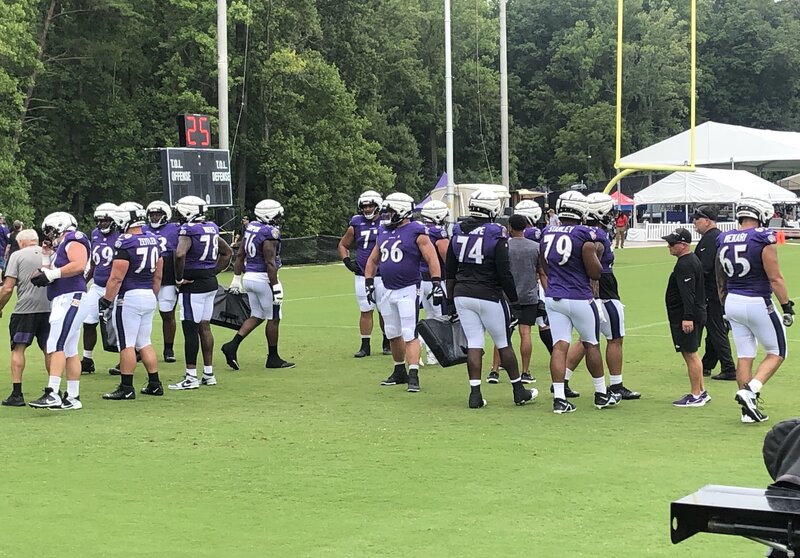What felt like turbulent waves running through the Maryland basketball program with the official departure of Jordan Williams on Wednesday registered as little more than a drop of a pebble in a pond 24 hours later.
After 22 years at the University of Maryland that included the 2002 national championship and 14 NCAA tournament appearances, legendary head coach Gary Williams announced his retirement Thursday afternoon, sending seismic waves through College Park and the landscape of the college basketball world.
“It’s the right time,” Williams said in a statement on Thursday. “My entire career has been an unbelievable blessing. I am fiercely proud of the program we have built here. I couldn’t have asked any more from my players, my assistant coaches, the great Maryland fans, and this great university. Together, we did something very special here.”
Special, indeed, as Williams returned to his alma mater as head coach in 1989 with the ashes still smoldering from the tragic death of Len Bias in 1986 and Maryland on the verge of being leveled with NCAA sanctions from violations committed under former coach Bob Wade’s tenure. Facing a mountainous climb back to respectability, Williams did that and much more.
Largely thanks to the arrivals of Joe Smith and Keith Booth, the Terps became a consistent Sweet 16 program beginning in 1994 and climbed to greater heights several years later. With local products Juan Dixon and Lonny Baxter leading the way on the court, Maryland advanced to its first ever Final Four in 2001 despite losing five of six from late January into mid-February of that season.
However, the following season would be the stuff of fairy tales as Williams, the coach who suffered through two-year postseason and one-year television bans in his first three seasons at Maryland, led the Terps to a second consecutive trip to the Final Four in 2002. This time playing at the Georgia Dome in Atlanta, the impossible became reality as Maryland won its first ever national championship, defeating Indiana 64-52 in a moment supporters couldn’t even dream just 10 years earlier.
[youtube]http://www.youtube.com/watch?v=8EgsMpPyFhg[/youtube]
As Dixon and Baxter collapsed to the floor in a warm embrace, Williams stood in the background, pumping his fist while taking satisfaction in knowing what he had rebuilt and taken to incredible new heights.
Williams retires as the fifth-winningest active coach in the nation and third all-time in ACC wins behind Mike Krzyzewski and Dean Smith. In his 33 years as a head coach — including stops at American, Boston College, and Ohio State — the 66-year-old compiled an overall record of 668-380. Williams finished with a 461-252 record in his 22 years at Maryland.
Always dealing with basketball giants Duke and North Carolina, Williams guided the Terps to three ACC regular season titles (1995, 2002, 2010), an ACC tournament championship (2004), and seven Sweet Sixteens. He was named National Coach of the Year in 2002 and ACC Coach of the Year in 2002 and 2010.
“Gary Williams is a legend,” said athletic director Kevin Anderson, who will utilize the retiring coach as an assistant athletic director and special assistant. “His accomplishments on the court have earned him a place among the elite in college basketball history. But Gary’s legacy here at Maryland goes far beyond basketball. From his philanthropic efforts to his tireless work with fans and alumni to his impact with our students, Gary has left an indelible mark of excellence on this university.”
Despite a 22-year run that dwarfed the accomplishments of longtime, high-profile coach Lefty Driesell, Williams was often a polarizing figure among Maryland supporters. After rebuilding the Terps into a consistent top-25 program in the 1990s, detractors argued he couldn’t lead Maryland past the Sweet 16. He responded with two consecutive national semifinal berths and a national championship.
But in the years following the closing of Cole Field House with a national championship season in 2002, Williams was unable to maintain the same level of success with the opening of the glitzy Comcast Center. After a Sweet 16 appearance led by Steve Blake and a few other championship holdovers in 2003, the Terps have failed to make it past the second round ever since.
Frustrations continued to grow as Maryland failed to make the NCAA tournament in 2005 — snapping an 11-year streak — and missed the tournament in three of the next six years, including this past season when the Terps missed the postseason entirely for the first time since 1993. In recent seasons, his critics — ironically feeling entitled thanks to the accomplishments of the very man — began calling for Williams to step down due to the struggles on the court and in local recruiting efforts.
Those attacks came to a climax two years ago when then-athletic director Debbie Yow was front and center in a not-so-subtle attempt to conclude the coach’s reign before an underdog squad scratched together a strong conference tournament run to make the NCAA tournament in 2009. Williams ultimately remained as head coach, but the final damage had been done to his frigid relationship with Yow.
In what amounted to Williams’ final season in the spotlight in College Park, senior Greivis Vasquez led the Terps to a share of the ACC regular season title with Duke after an exhilarating victory over the Blue Devils on Maryland’s senior night in 2010. The win clinched conference player of the year honors for Vasquez — a player with whom Williams still shares a deep bond — and helped earn the coach his second and final ACC Coach of the Year award.
[youtube]http://www.youtube.com/watch?v=pwig_bEiFGs[/youtube]
Following the Terps’ heartbreaking loss to Michigan State in the second round of the NCAA tournament later that month and losing Vasquez and two key seniors, Maryland stumbled to a 19-14 record in Williams’ final season. Unbeknownst to anyone, the Terps’ 87-71 loss to Duke in the ACC quarterfinals on March 11, 2011 not only turned out to be Maryland’s abrupt season finale and the swan song of all-ACC forward Jordan Williams, but ultimately marked the end of an era.
When the news broke on Thursday, comments immediately began flooding in from various players via social media. Having a reputation as a sometimes-surly coach who disliked the over-the-top recruiting tactics prevalent in today’s college basketball environment, countless players voiced their affection for the Maryland coach.
“I love Gary Williams, and I support him [no] matter what!” said Vasquez, who labeled him his coach for life.
The timing of Williams’ retirement leaves the program in flux, a day after learning leading scorer Jordan Williams would not return for his junior season this fall. Speculation has already started regarding incoming freshmen Nick Faust and Sterling Gibbs and their likely intentions to re-open their recruitment. Both will need a release from their signed national letters of intent to do so.
However, players come and go in the collegiate game. Even coaches are hired and dismissed with more and more frequency as the societal movement toward instant gratification provides shorter leashes for college coaches with every new season. Williams’ retirement signals a dramatic end to a mostly-wonderful period in College Park, especially to those who suffered through the heart-rending loss of Bias and the wretched cloud that rested over the university in the years that followed.
Numerous top names have already been tossed around as potential successors for one of the more attractive coaching jobs in the country, with Notre Dame’s Mike Brey and Villanova’s Jay Wright just two of many that will be discussed, but the dust will settle all too quickly and only time will reveal the future of Maryland basketball. The memories of the perspiring, jacket-throwing Williams screaming on the sideline or offering the fist pump as he’s introduced, however, will last as long as they play basketball at the University of Maryland.
As I casually pointed out in March when Williams celebrated his 66th birthday, he had reached the same age at which Smith stepped down from his brilliant career in Chapel Hill. The end was coming sooner rather than later.
But as is often the case in life, loyal supporters and critics alike may have envisioned the likely Hall of Famer’s farewell, but you’re never quite prepared when the moment finally comes.


































